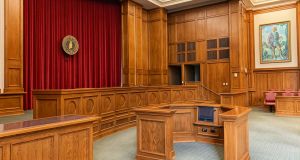Canada's Supreme Court has agreed on Thursday to hear two appeals over a private Christian university that demands all students to sign a "community covenant" forbidding sexual intimacy outside heterosexual marriage. The law societies argue that such ban discriminates the LGBTQ community who want to enter the legal profession.
The Trinity Western University (TWU) in Langley has been seeking accreditation for future graduates in all provinces of its proposed law school but has faced a harsh pushback from the law societies of British Columbia and Ontario over its controversial conduct code. The case's severe pit of religious freedom versus equality rights has made its way into the country's top court.
In details, the dispute stems from the university's controversial "community covenant" that bans sexual intimacy outside heterosexual marriage. All TWU law school students are mandatorily required to sign the covenant.
According to The Globe and Mail, TWU's code of conduct requires students to abstain from obscene language, harassment, lying, stealing, drunkenness, pornography and sexual intimacy "that violates the sacredness of marriage between a man and a woman". But at the same time, the law school assures the Supreme Court that it does not ban admission to gay, lesbian, bisexual or transgender students or faculty, and notes that its community offers an environment that greatly supports, loves and respects the sexual minorities.
The university that enrolls about 4,000 students annually, desires to allow evangelical Christians to study law in an environment that fully supports their beliefs. TWU said on Thursday that the law school is pleased the Supreme Court would resolve the issue. "We believe that the court will protect the TWU religious community," TWU's president Bob Kuhn said in a statement.
The law societies, citing the Christian law school's controversial covenant as discriminatory, has had a legal fight with the university for a long time, said CBC News. Thursday's decision by the Supreme Court of Canada to hear the appeals is the latest development in a lengthy battle that dates to 2014 when the Law Society of B.C.'s board of governors voted to accredit TWU graduates.




